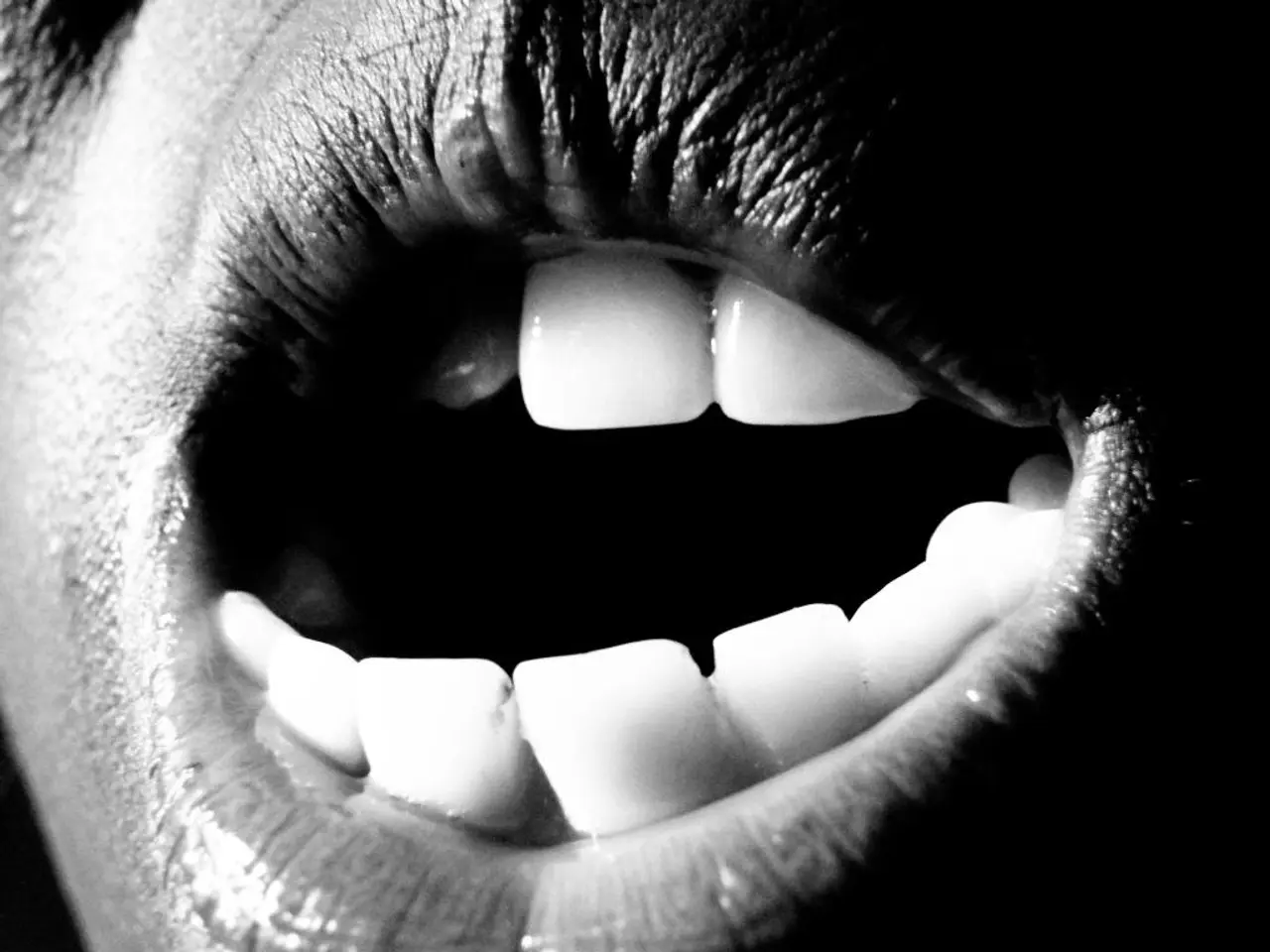The Fundamental Purpose and Role of Deciduous Teeth: An Examination of Their Developmental Significance
In the journey of human development, baby teeth play a crucial role that often goes unnoticed. These temporary teeth, which begin to erupt around six months of age, serve as essential placeholders that enable children to chew, speak, and develop jaws properly while their mouth is still small [1][2][3][4][5].
As the first set of teeth, baby teeth total 20 in number and help children transition from milk to solid foods. They support clear speech development and hold the correct space in the jaw for permanent teeth to grow in properly later [3][4][5]. Without baby teeth maintaining the space, permanent adult teeth could come in crooked or overcrowded [3].
The process of teething, marked by symptoms such as drooling, gum swelling, and a tendency to chew on objects, typically begins around six months of age and lasts for about two years. The lower central incisors are usually the first to appear, followed by the upper central incisors [1].
Permanent teeth start replacing baby teeth around age six. They are designed with larger crowns, stronger roots, and complex surfaces to endure the tougher chewing demands of a more varied adult diet. A full adult set has up to 32 teeth, including molars that don’t replace baby teeth but emerge posteriorly [1][2][4]. This two-stage development reflects human evolutionary adaptation to dietary shifts and the growth of the jaw from childhood to adulthood [2].
Caring for baby teeth is of utmost importance. Key practices include cleaning teeth as soon as they emerge, introducing fluoride toothpaste, scheduling regular dental visits, providing a diet rich in calcium, phosphorus, and vitamins, limiting sugary foods and drinks, avoiding putting a baby to bed with a bottle of milk or juice, and encouraging safe chewing habits. Proper care of baby teeth not only supports their child's development but also paves the way for a lifetime of good oral health [4].
The process of having two sets of teeth — deciduous (baby) and permanent — is an adaptation that supports the transition from infancy to adulthood. Understanding the purpose and importance of baby teeth underscores the need for diligent oral care during early childhood [5]. This efficient biological strategy ensures that baby teeth support early nutrition, speech, and jaw development, while permanent teeth provide the durability and functionality needed for adult life [2][3][4][5].
- Proper nutrition during early childhood is essential for the health and well-being of a developing child, as baby teeth play a role in transitioning from milk to solid foods.
- Good oral health practices during early childhood, such as cleaning teeth, providing a balanced diet, and scheduling regular dental visits, are crucial for the efficient growth and development of permanent teeth that offer durability and functionality for adult life.
- The science of nutrition and health-and-wellness highlights the importance of providing a diet rich in nutrients like calcium, phosphorus, and vitamins for the support of baby teeth, promoting clear speech development and proper jaw alignment, and ultimately paving the way for a lifetime of good oral health.








